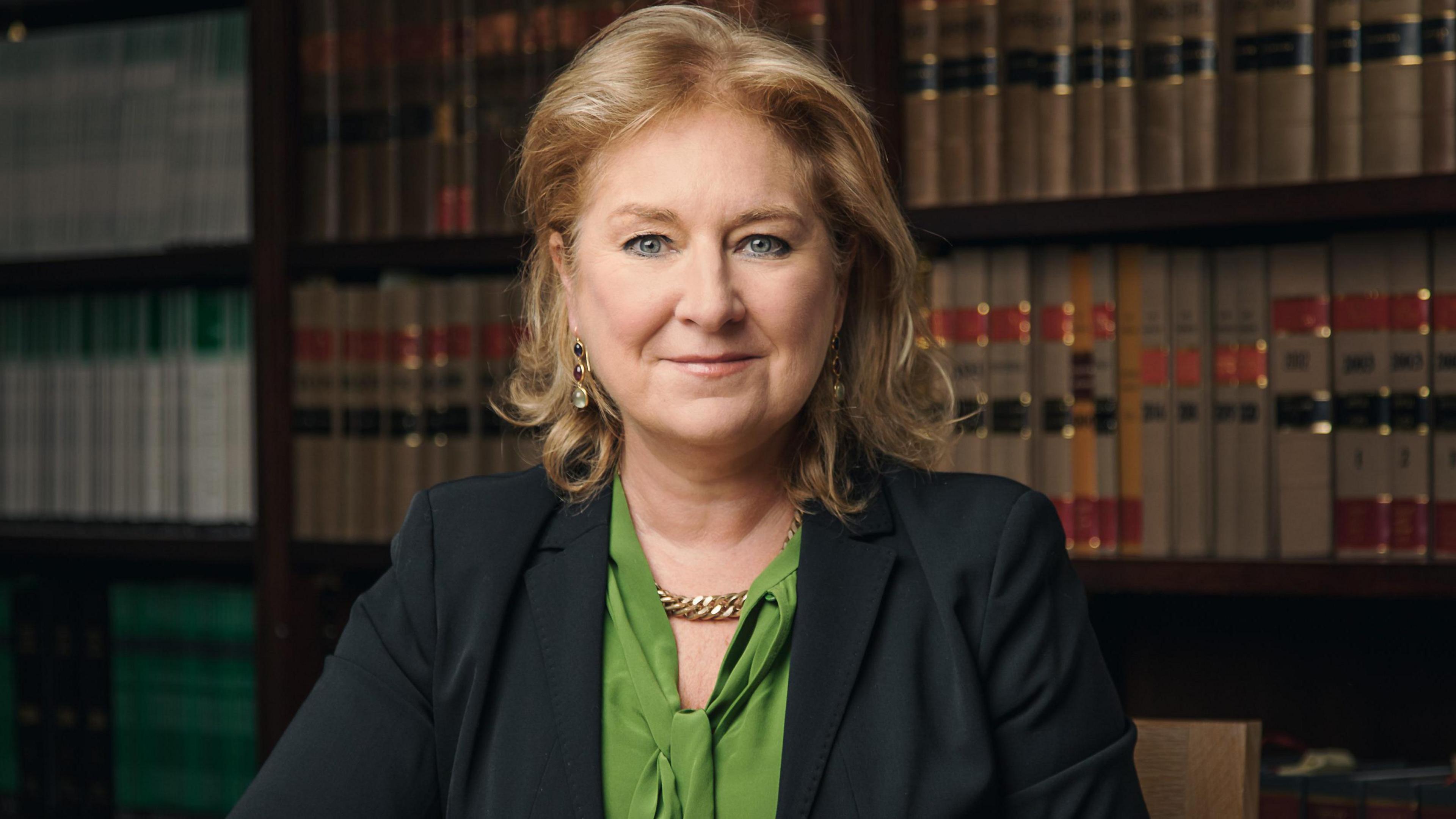Top judge warns of 'drastic' situation in courts

Baroness Carr revealed the previous government failed to agree funding for courts this year
- Published
The Conservative government left the courts in financial limbo until June because it failed to settle their funding, the most senior judge in England and Wales has told MPs.
Baroness Sue Carr, the lady chief justice, told Parliament's Justice Committee the criminal courts were in a "drastic" state and the previous government had repeatedly failed to offer funds in time for each new financial year.
She said the new Labour government’s decision to financially peg back how much work judges could do meant some courts would be out of use, despite record backlogs.
She predicted that those cuts would save no money and were "distressing" for victims and everyone else involved in the system.
Baroness Carr’s comments on the state of the courts come as the system struggles with record backlogs of around 68,000 open cases in the Crown Courts.
Those backlogs have been caused by a combination of complex factors, including the pandemic, but have their roots in a decision to cap justice spending before then.
The struggle for justice in one English town
- Published10 June 2024
Judges pledge to surge rape cases to cut backlogs
- Published6 March 2024
Speaking to MPs on the cross-party committee, Baroness Carr said the outgoing Conservative government had repeatedly failed to offer funding in time and had not made an offer for the 2024-25 financial year, which began in April, until June.
"The offer wasn't made until June, and agreement was not reached until June," she said.
"The latest it has been agreed, I think, is possibly July, even August.
"In the last six years, so far as I'm aware, the concordat agreement has never been reached before the year itself starts."
Baroness Carr said that while there were enough judges available to sit on cases for 113,000 days a year, the new government had pegged funding for them 6,500 days below that ceiling.
"The decision to limit us to 106,500 has, frankly, had a drastic effect across the board," she said.
"Judges have had to take fixed cases out of their lists. They've all had to cancel bookings [of part-time judges]."
Baroness Carr said the cases being removed from the schedule includes serious violence and sexual offences - and some of these could not be heard before 2027.
"The cases that are being taken out of the lists are cases that were ready to be heard before next April, so cases with judges, staff, courts, advocates, witnesses and complainants available," she said.
"Their removals are accompanied by long delays, sometimes years. This has been a most distressing time for witnesses, for police, CPS, advocates, court staff and judges alike."
Giving three examples of cuts from south-west England, she told the MPs that Bristol Crown Court had removed "hundreds" of cases from its schedule because it was having to close 40% of its courtrooms a week due to a lack of funds.
In Taunton, there would only be 60 court days available between January and March 2025 to run trials that needed 265 days. Truro’s crown court would be shutting one day a week.
"This is not about saving anything," she said.
"It is not about saving money. You are deferring the cost - and indeed you are increasing it.
"You are increasing it because inflation will mean everything costs more.
"You are increasing it because barristers and the Crown Prosecution Service are going to have to redo the work they had done to be ready for trial, because the case will be stale.
"And that is not even to touch upon the acute social cost... particularly where [sexual offences] complainants simply don't feel able to have confidence in the system anymore and walk away."
A Ministry of Justice spokesperson said: "The new government increased the number of Crown Court sitting days to a total of 106,500 – more than in six out of the last seven years.
"While we are bound by a challenging financial inheritance, this government is committed to bearing down on the Crown Court backlog.
"On top of increasing sitting days, we are extending magistrates’ court sentencing powers from six to 12 months, freeing up to 2,000 days in the Crown Courts to handle the most serious cases, and recruiting more judges."
The Conservative Party has been approached for comment.